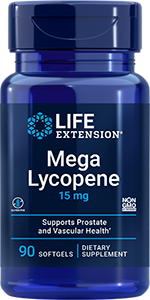| An article published in the January, 2010 issue of the journal Experimental Biology and Medicine reveals the discovery by researchers at McMaster University in Hamilton, Ontario that administering a combination of nutrients to mice delays the decline in activity that occurs with aging. Their finding adds to previous research showing that the supplement combo modestly extends life span, aids in the prevention of cognitive decline, and helps protect against radiation. Associate professor of biology C. David Rollo and colleagues used a formula consisting of the following nutrients: vitamins B1, B3, B6, B12, C, D and E, folic acid, beta-carotene, acetyl-L-carnitine, alpha-lipoic acid, acetylsalicylic acid, bioflavonoids, chromium picolinate, garlic, ginger root extract, Ginkgo biloba, ginseng, green tea extract, L-glutathione, magnesium, manganese, melatonin, N-acetylcysteine, potassium, rutin, selenium, cod liver oil, coenzyme Q10 and flax seed oil. Many of these nutrients have antioxidant benefits, which some researchers believe could help forestall a variety of age-related diseases and conditions. The supplement combination was given from the time of weaning to 9 normal mice and 11 transgenic mice that exhibited reduced motor activity and accelerated aging. Equal numbers of control animals received unsupplemented diets. While normal mice that did not receive the nutritional cocktail experienced a greater than 50 percent reduction in daily movement by 24 months of age, those that received the supplements maintained youthful levels of activity. Unsupplemented mice experienced increased declines in mitochondrial function and in brain signaling chemicals related to movement compared to supplemented mice, and showed increased oxidative injury. Untreated transgenic mice had reduced activity levels at all ages, yet those that were supplemented had an approximately 45 percent greater level of activity at 4 months compared to untreated animals. "As we all eventually learn, aging diminishes our mind, fades our perception of the world and compromises our physical capacity," Dr Rollo remarked. "Declining physical activity—think of grandparents versus toddlers—is one of the most reliable expressions of aging and is also a good indicator of obesity and general mortality risk." "For aging humans maintaining zestful living into later years may provide greater social and economic benefits than simply extending years of likely decrepitude," he added. "This study obtained a truly remarkable extension of physical function in old mice, far greater than the respectable extension of longevity that we previous documented. This holds great promise for extending the quality of life of 'health span' of humans." "Although identifying the role of specific ingredients and interactions remains outstanding, results provide proof of principle that complex dietary cocktails can powerfully ameliorate biomarkers of aging and modulate mechanisms considered ultimate goals for aging interventions," the authors conclude. |















